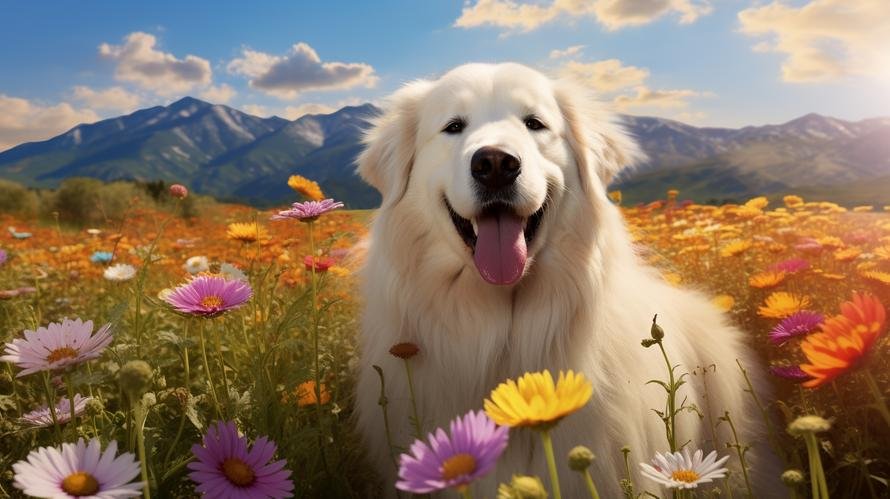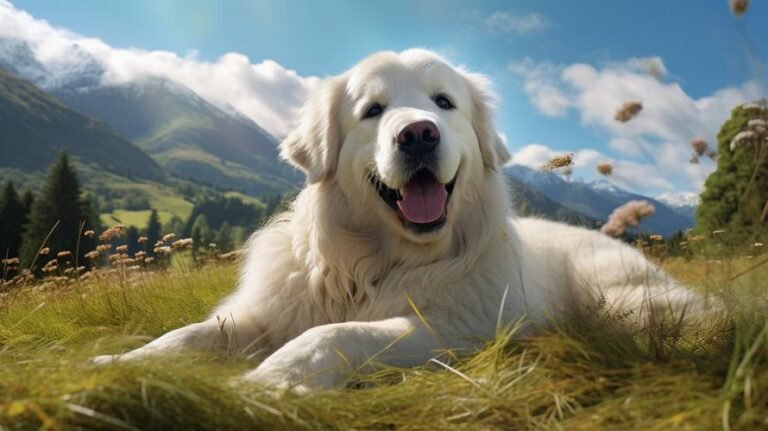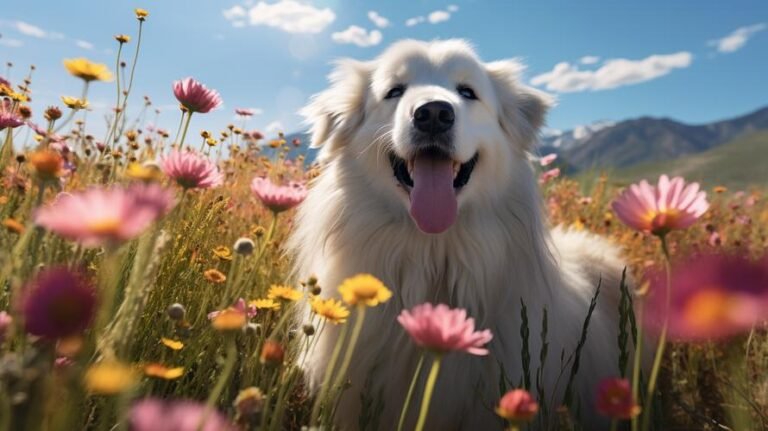Did you know the Great Pyrenees were once the loyal protectors of French nobility? These majestic, towering dogs, which can weigh as much as 160 pounds, were the designated guardians of chateaus in the hilly country borders of Spain and France. With their thick, lustrous coats and plumed tails, they’re exquisite beauties indeed – but don’t be mistaken, they were bred to work, not just to dazzle us with their good looks!
You might be wondering if a Great Pyrenees, with its royal lineage and aristocratic demeanor, would be difficult to handle as a pet. The answer isn’t as straightforward as a simple yes or no. Much of it depends on your circumstances and how well you understand the unique needs and traits of this majestic breed.
Their ability to guard their family and territory was an invaluable attribute on the French mountains where they were tasked with watching over flocks and keeping predators at bay. But nowadays, in the comfort of suburban homes, this protective instinct can be both a boon and a challenge. On one hand, you’ll never have to worry about security; on the other hand, Great Pyrenees have a tendency to stay vigilant, which means they may bark at anything they perceive as a potential threat – from passing pedestrians to the mail carrier. Training them not to bark at innocuous “threats” can be a bit tricky, as it goes against their centuries-old instinct.
Tolerance and patience are fundamental when it comes to training. The Great Pyrenees are independent thinkers, bred to make their own decisions while guarding sheep. So, they’re not as eager to please as some other breeds. This doesn’t mean they’re disobedient, just that they don’t see the need to follow every order to the letter, especially if they disagree. Extravagant rewards or hard discipline won’t impress them much. What works best is calm, consistent guidance and positive reinforcements.
One essential thing to know about the Great Pyrenees is their need for exercise and space. Sure, they enjoy lazing around the house, contemplating the secrets of the universe. But they also need a good deal of exercise to stay healthy and happy. A large, securely fenced yard where they can patrol and play is ideal, but long walks on a leash can also suffice.
Their majestic, luxurious coat is more than just attractive; it’s designed to withstand the harsh Pyrenean winters. But that also means they shed … a lot. Regular brushing will help you stay one step ahead of the fur situation in your home. And despite their size, they’re usually careful and gentle around furniture, so you won’t have to worry about damages – as long as you don’t leave your Louis XIV antique chair lying around!
If you have kids, the Great Pyrenees can be an excellent companion. They’re patient with children and capable of tolerating a lot of pulling and prodding. However, they can be somewhat cautious around strangers (an attribute of their protective nature), so socializing them from a young age is crucial.
Concerning health, like many large breed dogs, the Great Pyrenees is prone to issues like hip dysplasia, bone cancer, and certain skin conditions. Regular check-ups and a balanced diet can go a long way in preventing these health problems.
In conclusion, the Great Pyrenees can indeed be a ‘difficult’ dog if your lifestyle, living situation or your idea of a pet doesn’t align with their unique needs and characteristics. But if you’re drawn to their nobility, awed by their size, and if you have the time and patience to understand and guide them, then a Great Pyrenees could prove to be the loyal companion, the gentle playmate, and the priceless guardian that you and your family cherish for a lifetime. Plus, who wouldn’t want a piece of French nobility lounging around in your living room?



